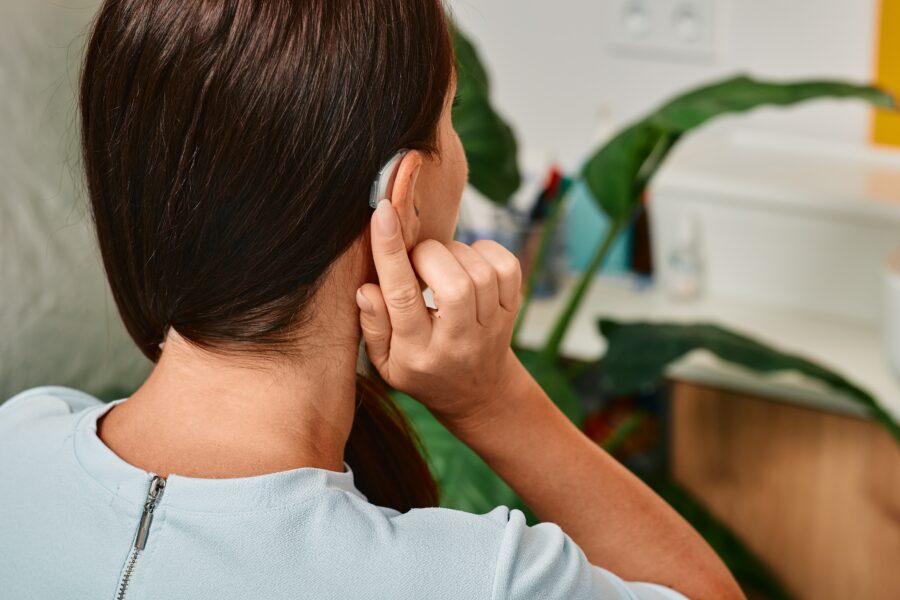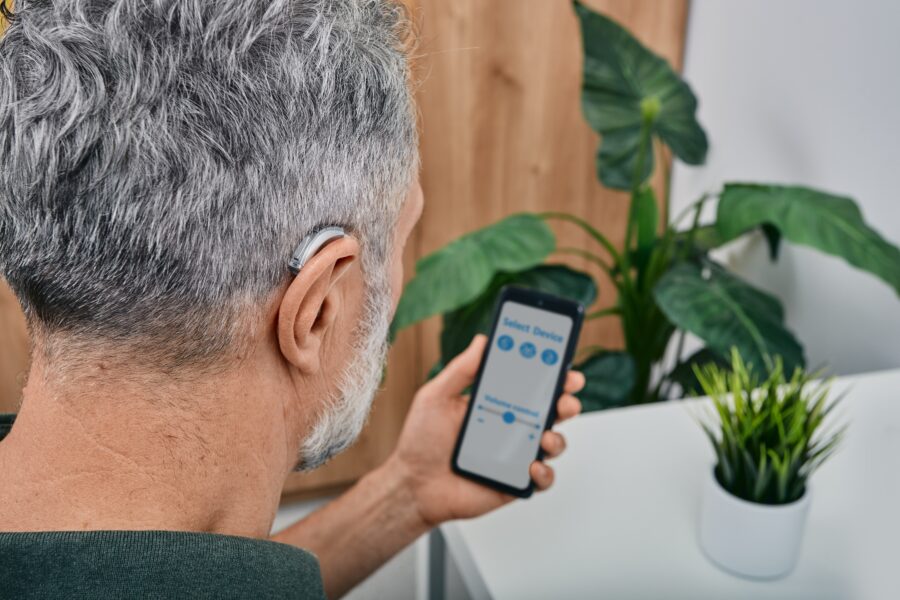Blog post
How Does a Hearing Aid Work?
Hearing aids don't just transform sounds for clearer hearing, but also connect you with the world in new and innovative ways, from Bluetooth connectivity to invisible options. Choosing the right hearing aid is a personal experience, and OutsideClinic can help you make the right choice that suits your budget, lifestyle, and needs.
How do hearing aids work?
1. The microphone on the hearing aid picks up sound from the environment.
2. The hearing aids then process and amplify the sound, based on several factors, including:
- the user's hearing loss profile (what frequency of sound you can and can’t hear), which is determined during a hearing test
- the different types of sounds, such as speech or background noise to reduce unwanted noise
- what direction the sound is coming from to improve clarity in challenging listening situations
3. The processed and amplified sound is then sent to a part of the hearing aid called the receiver.
4. The receiver then transmits the sound directly into the ear canal.
5. The ear receives the sound, which stimulates the auditory nerve, allowing the brain to perceive sounds that could not be heard before.

How do Bluetooth hearing aids work?
When you connect your hearing aid to a TV, computer, or mobile phone via Bluetooth, it processes and transmits the audio from your device just like it does with sounds from your surroundings.
This means you can stream phone calls, music, videos and other audio content directly to your hearing aids without needing additional accessories.
With Bluetooth connectivity, hearing aids can act as wireless headsets. This allows the user to answer and speak on the phone directly through their hearing aids. The built-in microphones in the hearing aids pick up the user’s voice, while the audio from the call is streamed directly into the hearing aids.
Many Bluetooth hearing aids come with mobile phone apps which allow users to control various settings on their hearing aids, such as volume, programme settings, and sound environment adjustments.
It’s a simple process to pair the devices to a hearing aid through Bluetooth. This usually involves turning on Bluetooth on both the hearing aid and the device and selecting the hearing aid from the list of available Bluetooth devices.

How do invisible hearing aids work?
“Invisible” or “discreet” can mean different things to different people when it comes to hearing aids.
If you're after completely "invisible" hearing aids, then CIC (completely-in-canal) and IIC (invisible-in-the-canal) hearing aids are the smallest of all the fitting types. These hearing aids are designed to sit further in your ear canal, making them very discreet and less noticeable.
Not only does their small size make them nearly invisible, but the colour options help them blend in even more effectively. Here at OutsideClinic, our hearing aids come in a wide range of colours to match different skin tones and hair colours.
They don't tend to have physical controls on the hearing aids themselves, although you can usually control them through a smartphone app or an additional remote control.
Because they have to be very small, they only fit certain types of hearing loss and require a certain sized ear canal.

How do hearing aids help with tinnitus?
Hearing aids can be highly effective in managing tinnitus.
1. Making external sounds louder
Hearing aids amplify external sounds, which can help mask the internal sounds of tinnitus. By making environmental sounds louder, the hearing aids reduce the prominence of tinnitus noise, making it less noticeable.
This is especially helpful for individuals with hearing loss, as their world is generally quieter, making tinnitus more prominent in silence.
2. Keeping brain pathways active
Tinnitus can sometimes be caused by changes in how our hearing pathways work. These pathways are the ways our brains process sound information. By providing consistent sound, hearing aids can help keep these pathways active, which may reduce the perception of tinnitus and improve overall hearing health.
3. Tinnitus management programs
Many modern hearing aids also come equipped with built-in sound therapy features and personalised tinnitus management programs. These features can generate soothing sounds, such as white noise or nature sounds which can help distract the brain from the tinnitus sounds and provide relief.
4. Reducing stress and anxiety
Tinnitus can be exacerbated by stress and anxiety. Improved hearing through hearing aids can help alleviate stress and anxiety in certain situations, which in turn may help to reduce tinnitus severity.


